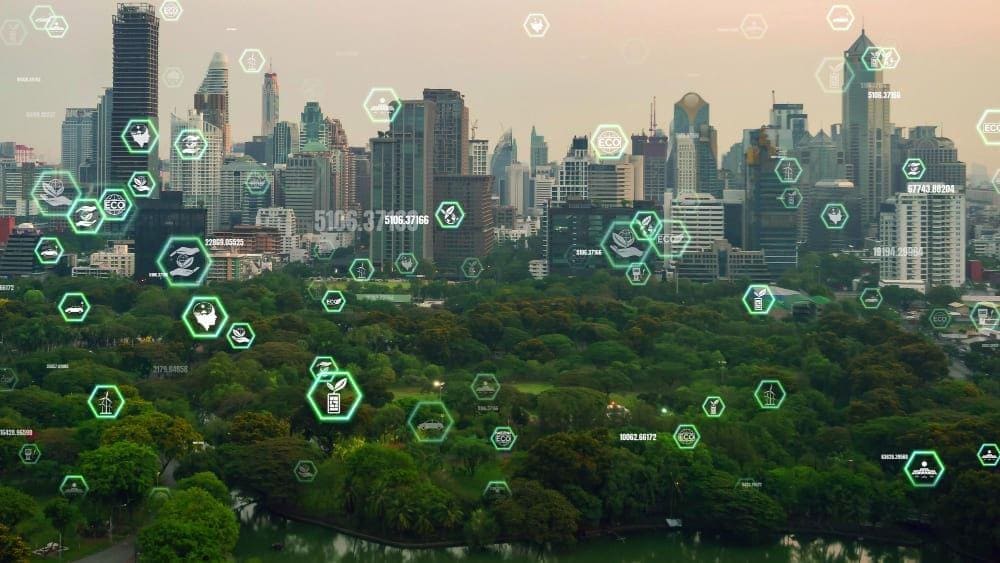Pioneering Sustainable Urban Development Through Data Intelligence
Global urbanization presents immense challenges, from resource depletion to environmental degradation. Cities, as centers of human activity, are at the forefront of this struggle, necessitating innovative approaches to achieve sustainability. The vision of a "green city" is no longer an aspiration but an urgent imperative, demanding comprehensive strategies that integrate ecological principles with modern technological capabilities. This transformation requires a fundamental shift in how urban environments are planned and managed.
At the heart of this paradigm shift lies data. The sheer volume of information generated daily by urban infrastructure, citizens, and environmental sensors offers an unprecedented opportunity to understand complex urban dynamics. Leveraging this data effectively allows city planners and policymakers to make informed decisions, optimizing resource allocation and minimizing ecological footprints. It moves sustainability efforts beyond guesswork to evidence-based action.
Implementing a truly data-driven green city blueprint demands sophisticated technological infrastructure. This includes robust data collection mechanisms, advanced analytical tools, and platforms capable of processing and visualizing vast datasets in real-time. Crucially, the effectiveness of these systems hinges on seamless Browser & Platform Compatibility, ensuring that all stakeholders, from city officials to researchers, can access and interact with critical information regardless of their chosen device or operating system.
The concept extends beyond mere data collection; it involves creating an intelligent ecosystem where various urban systems communicate and collaborate. Imagine traffic lights adjusting in real-time based on congestion data, or waste collection routes optimizing themselves according to fill levels of bins. Such interconnectedness relies heavily on open standards and strong Browser & Platform Compatibility, fostering an environment where different solutions can integrate effortlessly.
EcoVision Cloud recognizes the pivotal role of integrated data solutions in achieving these ambitious goals. Our approach focuses on developing scalable, secure, and user-friendly platforms that empower cities to harness their data for environmental good. We believe that unlocking the full potential of urban data is the key to designing cities that are not only sustainable but also more livable and resilient for future generations.
This journey towards urban sustainability is iterative, requiring continuous monitoring, evaluation, and adaptation. Data provides the feedback loop necessary for this ongoing improvement, allowing cities to track progress, identify areas for intervention, and measure the impact of their green initiatives. It transforms abstract environmental goals into measurable, actionable targets, driving genuine change.
Key Applications and Considerations
-
Smart Energy Grids: Data optimizes energy distribution and consumption, integrating renewables efficiently. Pros: Reduced carbon emissions, lower energy costs. Limitations: High initial investment, cybersecurity risks for critical infrastructure.
-
Intelligent Waste Management: Sensors monitor waste levels, enabling dynamic route optimization for collection vehicles. Pros: Decreased operational costs, improved urban hygiene, less landfill waste. Limitations: Requires extensive sensor deployment, data privacy concerns for individual waste patterns.
-
Sustainable Urban Mobility: Real-time traffic data, public transport analytics, and pedestrian flow information guide infrastructure planning. Pros: Reduced congestion, enhanced air quality, improved accessibility. Limitations: Requires significant public buy-in, complex data integration from diverse sources.
Navigating the Data Landscape: Expert Perspectives
Experts widely concur that data analytics is fundamental to modern urban sustainability. Dr. Anya Sharma, an urban planning specialist, notes, "Without granular data, our green initiatives are often shots in the dark. Data provides the precision needed to target interventions effectively, from optimizing building energy performance to managing water resources more intelligently." This consensus underscores the shift from broad policy statements to specific, measurable actions.
However, the path is not without its challenges and debates. A significant point of contention revolves around data governance and privacy. While collecting extensive urban data is crucial, ensuring its ethical use and protecting citizen privacy is paramount. Critics argue that unchecked data collection could lead to surveillance concerns or create new forms of digital inequality, highlighting the need for robust regulatory frameworks and transparent data handling policies.
Another critical discussion centers on the accessibility and interoperability of urban data platforms. Many cities operate with fragmented systems, where data from different departments or utilities remains siloed. Achieving a cohesive "green city blueprint" requires a unified data architecture. As Professor Mark Jensen emphasizes, "The true power of urban data emerges when it can be seamlessly shared and analyzed across various sectors, demanding open APIs and common data standards."
The role of artificial intelligence (AI) and machine learning (ML) in processing this data is also a topic of intense scrutiny. While these technologies promise unprecedented insights and predictive capabilities for urban planning, concerns exist regarding algorithmic bias. If historical data reflects existing societal inequalities, AI models could inadvertently perpetuate or even amplify these disparities in sustainable urban development projects. Careful model design and continuous auditing are essential.
Furthermore, the financial investment required for developing and maintaining sophisticated data infrastructure often poses a barrier for many municipalities. While the long-term benefits of data-driven sustainability are evident, the initial capital outlay can be substantial. This necessitates creative funding models, public-private partnerships, and a clear demonstration of return on investment to secure the necessary resources for widespread adoption of these critical technologies.
Towards a Data-Driven Sustainable Future
The journey towards truly sustainable cities is complex, yet undeniably propelled by the intelligent application of data. From enhancing energy efficiency to revolutionizing waste management and urban mobility, data provides the essential intelligence for informed decision-making. The challenges of privacy, interoperability, and equitable access remain, but they are surmountable with thoughtful planning and collaborative efforts.
Embracing a data-centric approach means investing not just in technology, but also in the policies and ethical frameworks that ensure data serves the common good. Cities that prioritize robust data infrastructure, like those offered by EcoVision Cloud, and foster a culture of data literacy will be better positioned to navigate the complexities of urban development and build resilient, environmentally conscious communities.
Ultimately, the green city blueprint is a living document, continually refined by insights gleaned from data. It represents a commitment to building futures where urban vibrancy coexists harmoniously with ecological integrity, proving that sustainability is not just an ideal, but an achievable reality through smart, data-driven strategies.








Ramon Long
23/08/2025This article clearly articulates the necessity of data in urban planning. The emphasis on Browser & Platform Compatibility is particularly insightful, as it's often overlooked but crucial for practical implementation. Great read!